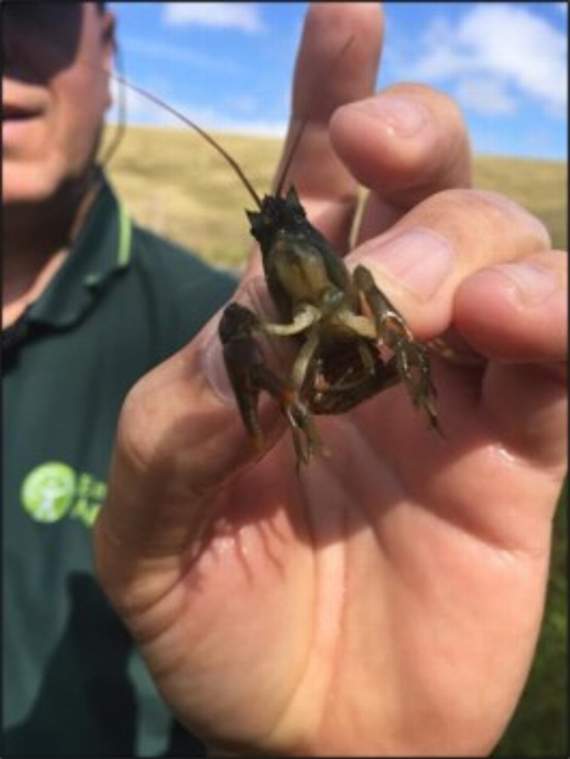EXPERTS are concerned that endangered crayfish are dying in the Forest of Dean because of the spread of a highly-infectious disease.Forestry England is working with the Environment Agency to investigate the deaths of endangered and legally-protected white-clawed crayfish.
The creatures are found in the Cinderford and Soudley Brook area.It is expected that the cause is a "deadly and very infectious" disease called Crayfish Plague. Once present in a watercourse, white-clawed crayfish usually all succumb to the disease, which has led to declining numbers of the species in the UK.The disease is species-specific and is not harmful to humans or other animals.Forestry England says white-clawed crayfish resemble "miniature lobsters" and hide away under rocks and logs during the day and emerge at night to eat.The species, which is the largest native fresh water invertebrate in the country, is now rare in Britain.Experts say their few remaining populations are "very vulnerable" to the disease, and also face local extinction due to competition from non-native crayfish species and loss of habitat.Crayfish Plague can take hold of a population over several weeks, as the fungus is spread by contact between individual white-clawed crayfish, through the water or through contact with infected mud.The fungal spores can live without a crayfish host for 22 days in the water as well as on damp clothes or equipment.FE and EA have warned that the disease can be transferred to crayfish in other parts of the catchment via water and mud on damp clothes, footwear, bike tyres, vehicle tyres, fishing and boating equipment and machinery, as well as by dogs, horses and livestock.The organisations have provided a list of "simple biosecurity steps" that locals and visitors can take to prevent further deaths, which includes cleaning off any mud or vegetation from clothes and equipment, thoroughly drying equipment after use and treating it with a disinfectant capable of killing fungal spores.The list also warns not to use damp equipment in another stream on the same day, and to not allow dogs to swim in surrounding waters.Members of the public are also advised not to handle or remove live or dead crayfish, which it is illegal to do without a license.Sightings of dead crayfish can be reported by calling an incident hotline on 0800 80 70 60.


.jpeg?width=209&height=140&crop=209:145,smart&quality=75)


Comments
This article has no comments yet. Be the first to leave a comment.